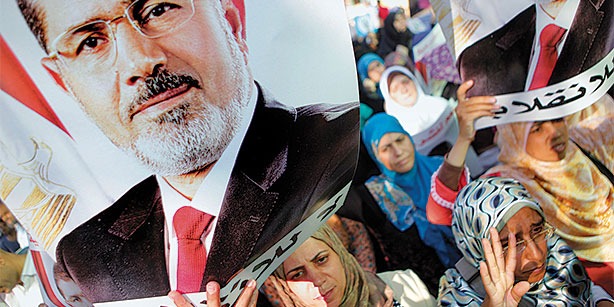Watching the defiant figure of Mohammed Morsi as he arrived to stand trial in a makeshift Cairo military court last week, it was hard not to notice the extraordinary disconnect between the principled recalcitrance of the ousted Egyptian president and the new political reality that has settled over the country.
For all his repeated claims to legitimacy, Morsi’s appearance in the caged dock presented a cruel reminder that in the four months since he and his colleagues were unceremoniously removed from power and thrown into jail, the leaders of the Muslim Brotherhood have fast become yesterday’s men in Egyptian politics.
As they languished behind bars, went into hiding or fled abroad, Egypt’s new rulers have been busy creating new realities on the ground. Apart from banning the Brotherhood’s activities and freezing its assets, the military has appointed a puppet interim government, restored the draconian state of emergency in force during the entire 30 years of the Mubarak era, revived the dreaded State Security Investigations Service – a byword for police oppression that was shut down after the 2011 popular uprising – and generally restored its position at the helm of national politics. In fact the military’s self-reassertion has been so decisive that it renders incredulous any claim it might make about wanting to usher in genuine civilian democratic rule.
The coup represents the culmination of military efforts to undo the achievements of the 2011 uprising. Smarting from that chastening defeat and the subsequent failure to bring Ahmed Shafiq, their preferred candidate in the following year’s presidential election, to power the generals set about plotting a swift return. In a series of off the record interviews with senior military officials in the aftermath of the coup last July, the Associated Press revealed how beginning with the crisis set off by the Port Said football violence the military exploited the country’s bitter political divisions to undermine Morsi’s government and prepare for a comeback.






